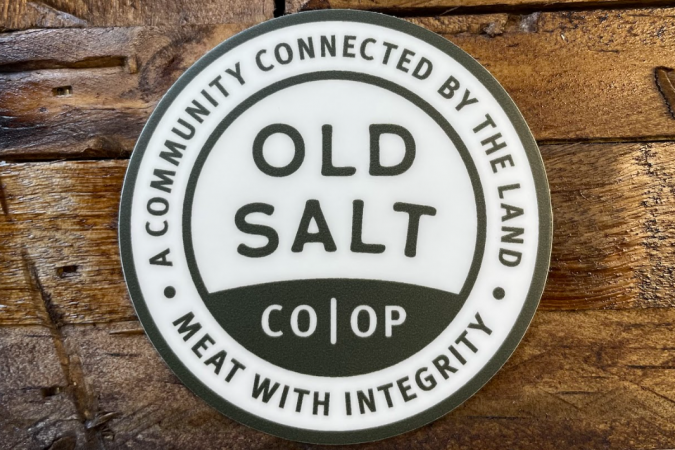Meet the Business Owner
Cole Mannix comes from a nearly 150 year legacy of intergenerational land stewardship. Since 1882, his extended family has ranched together in Montana’s Blackfoot Valley. While ranching runs through his veins, Cole first pursued other interests to test whether a full-time commitment to ranching was the path for him. After obtaining his Bachelor's degree in biology and philosophy, as well as a Master’s degree in theology, Cole taught at Carroll College in Helena. In 2012, the 5th generation rancher made his return to the land, when Cole was hired by a startup grass-fed beef company. He later joined the staff of Western Landowners Alliance, went on to become a conservation consultant, and slowly built his community of ranchers, butchers, and chefs that would ultimately become Old Salt Co-op.
Old Salt has three founding family ranches from Montana: the Mannix ranch in Helmville, the Anderson ranch in Melville and Centennial valley, and the Hibbard ranch in Adel. After writing out Old Salt’s business plan during the early days of the pandemic, Cole recruited ranches that he already knew were aligned in their practices and looking to build a new, alternative market operating direct to consumer or with wholly-owned retail, and supporting the local food economy. The first wholly-owned retail establishment is a burger joint called Old Salt Outpost, which launched in October 2021 and was an instant hit with the community. In addition to converting an existing custom exempt meat processing facility into a USDA inspected facility, Old Salt has plans for a flagship butcher shop, a modular slaughter unit, and another restaurant and retail space already in the works. Diversifying their sales outlets helps with inventory management and provides a buffer for other less stable factors like the fluctuating demand for particular cuts. Old Salt’s model affords producers more connection and control over processing quality, allowing for agile decisions that can also curb food waste and increase profit margins.
Old Salt holds an ethos that people are not true owners of the land, but are stewards responsible for the health of the resources that fall under their management. With the support of their many partnerships including conservation groups, private landowners, and government agencies, they are constantly striving to improve soil carbon and fertility, limit agricultural inputs, and benefit the broader ecology and wildlife habitat. They believe it is possible to manage land and livestock in a way that allows ecosystems to flourish while providing a good living for families, nourishing communities with healthy food, and contributing to the long-term vitality of people and the places they live.
Regenerative & Sustainable Practices
While they hold a legacy of sustainably-raising local beef, the ranchers that comprise Old Salt are driven by a larger vision of building a regenerative food economy that prioritizes the health of both the land and the people that reside on it. Taking the common challenges of owning a meat enterprise into account, Old Salt engages in practices that:
- Support and partner with ranches that restore degraded soils to develop a more resilient landscape with higher forage productivity, greater nutrient density, deeper root systems, and healthier animals.
- Treat animals with the respect and care they deserve, raise them naturally without the use of hormones, and allow them to roam and graze on pasture. All three founding ranches participate in smaller IMI Global certifications such as NHTC (non-hormone treated cattle).
- Protect species across the larger ecosystem through third-party certification programs and ecological monitoring systems. Old Salt is currently evaluating Savory Institute's Ecological Outcomes Verified Program as well as Audubon's Conservation Ranching Initiative for "Bird-Friendly Beef."
- Increase employment in the local and regional economy by providing high-quality sustainable jobs. All three founding ranches have participated in Western Sustainability Exchange’s certification program, which evaluates sustainability through the lens of both environmental stewardship and economic prosperity.

